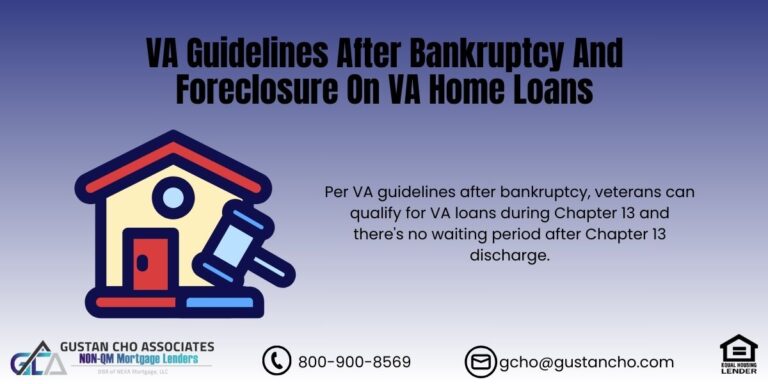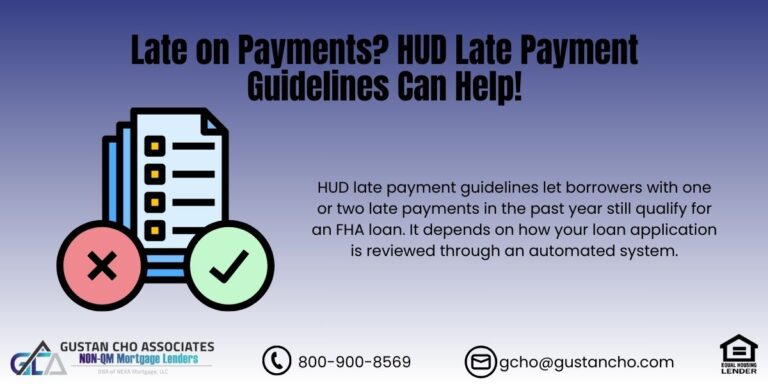Mortgage Refinance Guidelines
This guide covers mortgage refinance guidelines. We will also cover homeowners’ top reasons and benefits for refinancing their mortgage loans. There are other reasons why homeowners need refinancing on their current mortgage loan besides just refinancing.
Per mortgage refinance guidelines, homeowners may refinance to have a lower interest rate and save money. Although the main reason is to refinance their current high-interest mortgage into a lower-interest mortgage loan, some homeowners need to refinance their mortgage loans for other reasons.
A typical reason homeowners refinance their mortgage is getting a non-occupant co-borrower out of the mortgage note. Get an ex-spouse off the note of the mortgage loan due to a divorce. Another reason to refinance is to change loan programs such as FHA into conventional loans. In the following paragraphs, we will cover the mortgage refinance guidelines on home loans.
FHA and VA Streamline Mortgage Refinance Guidelines
Homeowners who currently have a VA or FHA loan and had it for at least six months can qualify for a VA or FHA streamline refinance mortgage. Per HUD and VA mortgage refinance guidelines, there is no appraisal, income verification, or credit score are required. Gustan Cho and his Associates offer this special program for mortgage loan borrowers in most 50 states.
All closing costs can be rolled into a new VA or FHA streamlined refinance mortgage loan. Homeowners can have had recent late payments and derogatory credit in the past 12 months and will still get approved.
The only requirement is that borrowers have been timely on their VA or FHA mortgage payments for the past 12 months. No late payments with housing payments. One 30-day late payment in the past 12 months is allowed. Homeowners can refinance their current FHA to a Conventional loan.
Mortgage Refinance Guidelines on FHA To Conventional Loan
Real estate prices have skyrocketed in Illinois, Florida, California, Washington, Georgia, Texas, Michigan, Oregon, North Carolina, South Carolina, D.C., Oregon, Arizona, Oklahoma, Kansas, Alabama, Colorado, Ohio, Mississippi, Arkansas, New Mexico, Minnesota, Kentucky, Tennessee, Nevada, New Jersey, Pennsylvania, Indiana, and Washington as well as the rest of the country.
For example, a client just called me last week wanting. He wanted to see if it would make sense for him to refinance his Florida home that he purchased last year for $171,000 with an FHA loan. After researching comparable properties in his area, similar and like properties are now selling for $250,000. This homeowner can qualify for an 80% loan to-value conventional loan.
By doing so, borrowers get cash back at closing and do not need to pay the hefty monthly FHA mortgage insurance premium. FHA requires lifetime FHA MIP for the term of the FHA loans. Conventional loans do not require private mortgage insurance on a loan valued at 80% or under. After he refinances his current FHA to a Conventional loan, the homeowner will no longer have to pay private mortgage insurance.
Cash Out Refinance Mortgage Guidelines
Due to the spike and consistent appreciation of real estate prices in most of the United States, many homeowners are taking advantage of the double-digit annual appreciation of their homes by refinancing their homes and doing a cash-out refinance mortgage.
Homeowners can do a cash-out refinance mortgage on a home six months after purchasing a home with a conventional loan. The maximum loan-to-value allowed on a cash-out conventional loan refinance mortgage loan is 80% LTV.
With an FHA loan, homeowners can do a rate and term refinance mortgage six months after a home purchase. Homeowners must wait 12 months after the home purchase to do a cash-out FHA refinance mortgage loan. The maximum loan-to-value on a cash-out refinance mortgage loan is 80%. The U.S. Department Of Veteran Affairs (VA) allows up to 100% LTV cash-out refinance loans.
Taking Out Co-Borrower Refinance Mortgage Guidelines
Borrowers with non-occupant co-borrowers can refinance their mortgage and drop non-occupant co-borrowers. Homeowners with an ex-spouse on a mortgage can also refinance their home loans and remove an ex-spouse from the mortgage note.
Hundreds and thousands of homeowners have recently purchased their homes in the past few years with an FHA loan. They often do not realize how much their home prices are appreciated.
By doing so, they can avoid paying the hefty FHA monthly mortgage insurance premium. Home values have increased double-digit appreciation year after year since 2010. There are many instances where an ex-spouse demands to have his or her name off the mortgage note. The simple solution is to refinance the current mortgage loan into a new mortgage loan, relieving the co-borrower or other borrowers of the new mortgage note.







